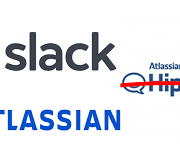Texting is the most used data service in the world. Almost everyone always has a text-capable mobile device on their person. Many people use their personal devices to conduct company business. However, this BYOD (Bring Your Own Device) model has proven troublesome for the medical industry. Sending PHI (Protected Health Information) by using a text message is not HIPAA (Health Insurance Portability and Accountability Act) compliant.
What is HIPAA?
HIPAA is a set of government guidelines designed to protect the integrity of PHI and the privacy of the patient. These guidelines cover such things as how PHI should be stored, who should have access to it, and how it should be used. They also cover security issues such as how PHI is protected against inappropriate alteration, the systems for ID authentication, and transmission security.
Medical offices and the like need to be HIPAA certified to ensure they are compliant. The HIPAA guidelines apply not only to texting, but also covers email, files, images, and voice recordings. PHI must be properly protected anytime it is sent electronically beyond the HIPAA covered entity’s fire-walled servers.
HIPAA, Texting, and BYOD
Texting is a popular and convenient way of communicating. It is very tempting for medical employees and caregivers to send PHI via text. Studies have reported that as many as 80 percent of healthcare providers use personal mobile devices to help support their workflows. Removing this option in order to comply with the HIPAA guidelines for texting medical information would have a detrimental effect on the flow of communication. It could also negatively affect patient outcomes.
However, the risk of a breach of PHI from the use of a personal mobile device is substantial. A lost or stolen Smartphone – or even an unattended Smartphone – can provide unauthorized access to PHI. With fines of up to $50,000 per day per unauthorized disclosure of PHI, it makes financial sense for a healthcare organization to resolve the problem of texting medical information with an appropriate solution.
Secure Messaging: The convenience of texting with HIPAA compliance
A secure messaging application allows healthcare professions and caregivers to communicate in a similar way to SMS/
Secure messaging applications communication through a private, encrypted connection that protects the PHI and is HIPAA complaint. A secure messaging application will also automatically log a user out of the application after a set period of inactivity so that a lost or stolen device does not expose PHI.
Added Benefits of Secure Messaging
Secure Messaging applications are very cost effective. An application like MessagePro Secure costs nothing to install. It has a very low monthly operating cost. It is also easy to get user acceptance, since the interface is very similar to many familiar texting applications. Analytics and reporting are also available to measure workflow, manage employees, and show improved patient outcomes.
Find Out More About MessagePro Secure
MessagePro Secure is available from any computer desktop via a browser. Both Android and iOS are supported for mobile devices. In addition
Visit the MessagePro Secure page on our website for more information,use cases, and pricing.





Leave a Reply
Want to join the discussion?Feel free to contribute!